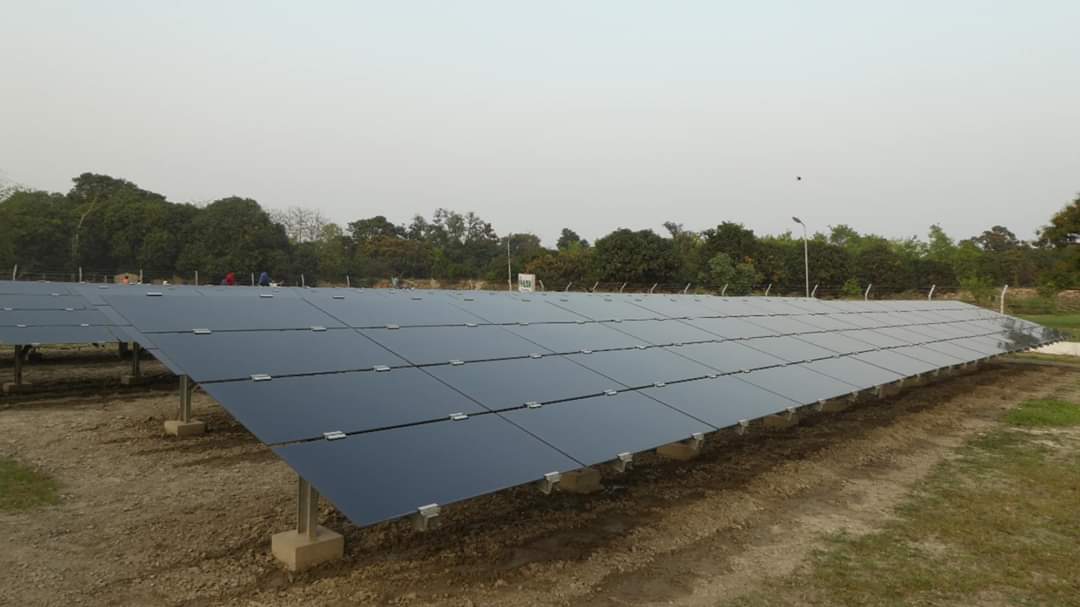As the transition to a low-carbon economy gathers pace across emerging economies and new technologies and untapped demographic segments come to the fore, blended finance offers a solution that can help alleviate the technological and market risks allowing such projects to access affordable capital, a new joint report by the Institute for Energy Economics and Financial Analysis (IEEFA) and auctusESG finds.
The report highlights that in developing and emerging economies, commercial financiers are mostly backing utility-scale wind and solar projects at the expense of smaller-scale projects, such as mini-grid solar, which offer economic, social and environmental benefits for all, especially in those economies that still face energy poverty.
“Blended finance is typically for projects with combined developmental objectives, which otherwise do not get funded via conventional financing channels, or for those sectors where the risk-return profile of a project is yet to be established but they need to scale,” says the report’s co-author Vibhuti Garg, director, South Asia, IEEFA.
“Its primary role is to bridge the gap between the level and direction of finance flows required from a social perspective and the flows determined by prevailing market conditions,” she adds.
According to the report, Blended finance fits in as a financing tool for the aforementioned types of projects by pooling public and private capital in a risk-adjusted return structure, while adding an element of concessional capital to the pool.
“Commercial entities focus on risks and returns, and gauge risk based on factors such as proven business models, visibility of cash flows, and credentials of borrowers, which often are not strong in the case of several small scale and emerging interventions in clean energy,” says the report’s co-author, Namita Vikas, founder and managing director, auctusESG.
“Blended finance’s bespoke structuring approach, involving public and private capital, addresses the perceived financial risks, and thus provides comfort to raise commercial capital at scale. Using blended finance judiciously based on contextual factors would not only facilitate finance for energy transition at scale, but would create energy access to millions suffering from energy poverty while enabling a climate-smart planet,” she adds.
Blended finance incorporates a wide range of stakeholders, such as a nodal implementation agency, commercial capital providers (microfinance institutions, banks and non-banking financial companies), catalytic capital providers (multilateral development banks, philanthropies), project developers, local communities, customers, auditors and consultants.
“Blended finance can essentially help pay for positive social benefits by combining commercial borrowings with concessional instruments such as grants or subsidised loans from the government, philanthropic resources and multilateral development banks,” says the report’s
co-author, Shantanu Srivastava, lead analyst, Sustainable Finance & Climate Risk, IEEFA.
“At the same time, blended finance is not a grant, and demands reasonable financial returns, even if the desired returns may, at times, vary from market returns,” he adds.
The report focuses on mini-grids as a renewable energy resource that aligns with a just transition in areas where the cost and reliability of central grid power is a bottleneck. It provides a go-to market strategy for capital providers looking at energy transition as an opportunity. It shows how blended finance’s bespoke structure can help aggregate smaller projects at commercially viable scale: a win-win for all and a shining example of trickle-down economics that actually works.
This content is protected by copyright and may not be reused. If you want to cooperate with us and would like to reuse some of our content, please contact: editors@pv-magazine.com.









4 comments
By submitting this form you agree to pv magazine using your data for the purposes of publishing your comment.
Your personal data will only be disclosed or otherwise transmitted to third parties for the purposes of spam filtering or if this is necessary for technical maintenance of the website. Any other transfer to third parties will not take place unless this is justified on the basis of applicable data protection regulations or if pv magazine is legally obliged to do so.
You may revoke this consent at any time with effect for the future, in which case your personal data will be deleted immediately. Otherwise, your data will be deleted if pv magazine has processed your request or the purpose of data storage is fulfilled.
Further information on data privacy can be found in our Data Protection Policy.